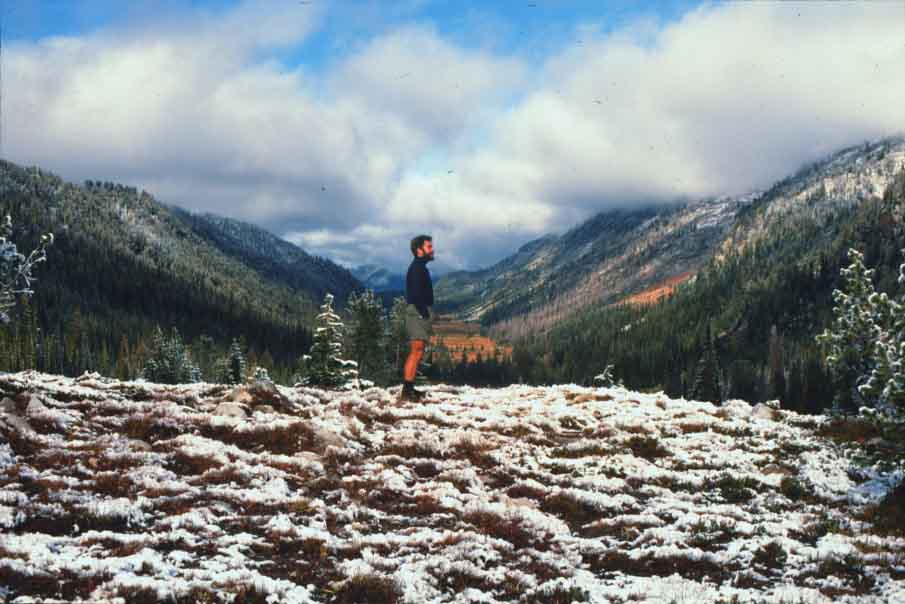 Dr.
Rolloff's RLS42 Course Syllabus
Dr.
Rolloff's RLS42 Course Syllabus

| Department of Recreation & Leisure Studies | College of Health & Human Services | CSUS home |
syllabus |
RLS 42 syllabus |
||||||||||||||||||||||||||||||||||||||||||||||||||||
|
Class Meeting Time: Tuesdays and Thursdays 1:30 – 2:45 p.m. Class Meeting Location: Solano 2000 Professor's Course Description: This course is about natural resources that are used for outdoor recreation. We'll study places as close as the American River Parkway, as well as parks and wilderness areas that aren't so close, such as Yellowstone National Park. The course focuses on the protection and management of natural resources so that they are available for future generations. After the beginning of the course you will understand what is meant by the land ethic. You'll know the difference between national parks, state parks, wilderness areas, and county parks. We'll look at the government agencies responsible for the protection of these natural resources, as well as how environmental and political factors figure into the whole picture. Several managers from land management agencies will visit with the class. The course will also have a service learning component in the form of a field project outdoors. Catalogue Description: Examines strategies for the use of natural resources for recreation and leisure purposes in a variety of settings and under the auspices of various agencies and enterprises. Includes study of various outdoor settings, conflicting use demands, agency responsibilities, environmental considerations and fiscal implications; and the integration of these elements into a functional program and/or recreation resource management. 3 units. Easy Print Version of Syllabus Objectives :: Texts :: Technology :: assignments/Exams :: Grading :: Attendance Policy :: Technology :: Writing Standards :: Accommodations :: Meeting Format
Attitudes & Values
Skills & Knowledge
Required: The 2 primary texts for the course this semester are: Dennis, S. 2001. Natural Resources and the Informed Citizen. Champaign, IL: Sagamore Publishing. Jubenville, A. and B.W. Twight. 1993. Outdoor Recreation Management: Theory and application. State College, PA: Venture Publishing. You can purchase books through the Hornet Bookstore. Check their Online Textbook Sales page at http://www.foundation.csus.edu/bookstore/textbooks/ for ordering information. Other booksources can be found at Borders.com and Amazon.com. Other important materials (articles, websites) will be assigned reading for the course and can be found through links on this page. You will need a copy of the software MS Word to view some files in these webpages. Registered students can obtain this software at a very reasonable cost. See the University Computing and Communications Services for more information on obtaining this software. Percentages are approximate because of rounding. The following assignments are due on the dates indicated.
Track your grade by printing a copy of the form "How Am I Doing in RLS 42?" Visit with Dr. Rolloff if you ever have concerns or questions about your progress in the course (he likes to talk).
Attendance and participation are part of the course evaluation/grade, therefore attendance at all class sessions is required. Students who come to class will be rewarded with points toward your final grade for each class session attended (totaling 10% of the course grade). Absences will subtract from your grade point total. Students are required to have a SacLink electronic mail account and computer access to the Web. All CSUS students enrolled in one or more units can create a SacLink account for electronic mail and Internet services. Although a home computer with a high speed modem running Netscape or Internet Explorer would be beneficial, students can use the Web from one of the campus student labs. Computing Recommendations
Course Writing Standards: Written work must follow the guidelines in Dr. Rolloff’s Writing Handout unless otherwise stated.
No late papers
will be accepted.
Course Assistance & Accommodations If you have a disability and are in need of accommodation or assistance in this course, please let me know privately how I can help you have a successful learning experience in RLS 42. If you have special learning requirements I'll need to know during the 1st two weeks of class. You may also contact Teresa Mendick, Associate
Director for Services to Students with Disabilities at 278-6955 or
mendicktc@csus.edu. More information on CSUS’ Services for Students with
Disabilities can be found at the website
www.csus.edu/sswd/sswd.html.
Class Meeting Format: An interactive, discussion-oriented approach will characterize how we will meet as a group. Small group discussion, individual exercises, class conversation and storytelling will be utilized, as well as the more traditional lecture. Any discussion of the readings will expand on the readings, not review or repeat them. Your ability to actively participate will reflect your preparation. Instructor Note: My First Year at CSUS Because this is my first year at CSUS, I’m going to be figuring out what works and what doesn’t for RLS 42. Some things will work well while others might not. I welcome you to let me know of any ideas you might have to make this course more relevant to your interests and needs. If you have concerns or problems with how the course is going, please let me know right away so I can make adjustments. Undoubtedly there will be some schedule and project adjustments, so plan on being flexible.
|
||||||||||||||||||||||||||||||||||||||||||||||||||||
| last updated: 01/28/2003 | ||||||||||||||||||||||||||||||||||||||||||||||||||||
